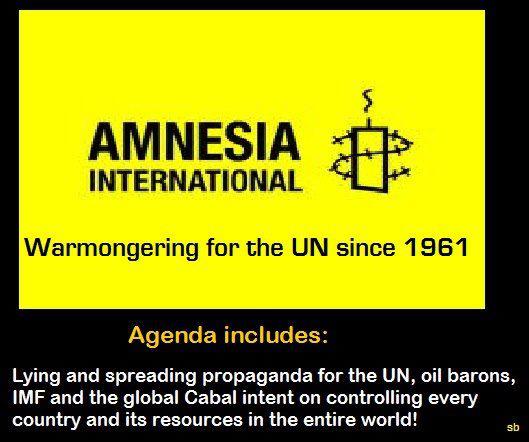Feb 08
20130
Amnesty International, Humanitarian Agencies, Imperialist Wars/Occupations, Non-Profit Industrial Complex, The International Campaign to Destabilize Syria, The War on Libya - There Was No Evidence, Whiteness & Aversive Racism
Al Jazeera Amnesty International Human Rights Watch Libya Media NATO R2P Syria
Amnesty International: A Criminal Organisation in the Service of Western Imperialism

August 28, 2012
by Metro Gael
Last year the North Atlantic Treaty Organisation launched a brutal war of aggression on Libya killing thousands of civilians and replacing an independent, responsible government with gangs of hooligans, Wahabite terrorists and outright criminals. What was once Africa’s richest and most successful state was bombed into oblivion, its impressive infrastructure destroyed, its thousands of people’s committees and people’s assemblies closed.Universities, schools, and hospitals were bombed by French, British and American jets. Thousands of Libyans were blown to bits. Libya’s revolutionary leader, Muammar Al Gaffafi, was presented to the ignorant readers of the Western press as a brutal dictator, in spite of the fact that he had held no official position in Libya since the mid 1970s. →








